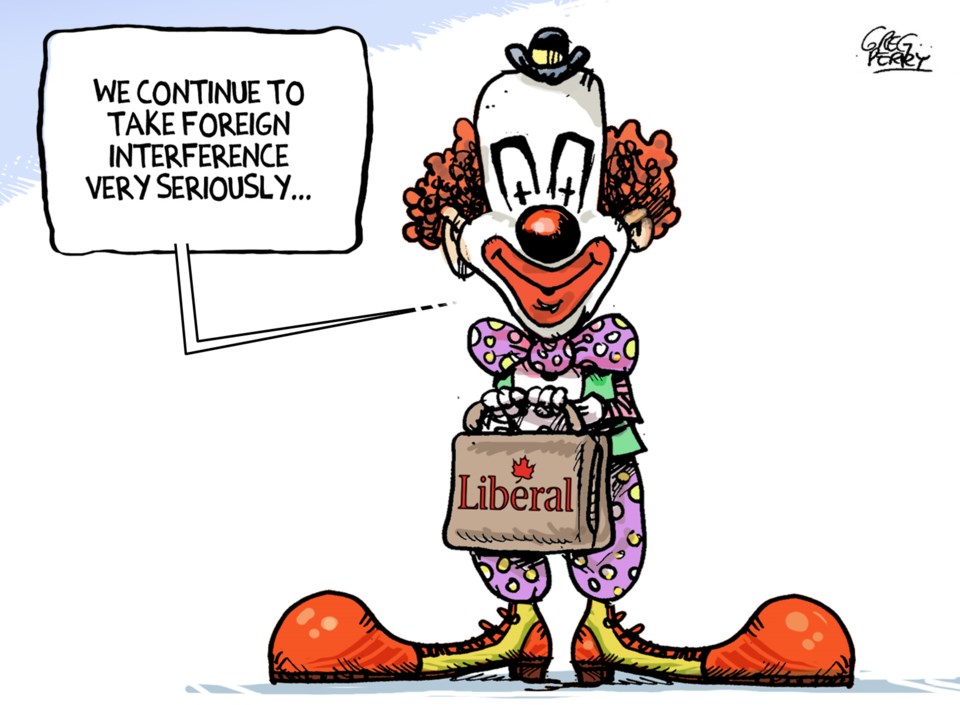The Government of Canada has taken an untenable position on the foreign interference discourse currently swirling thanks to the recently-released report from the National Security and Intelligence Committee of Parliamentarians (NSICOP).
The 84-page report, which was informed by thousands of documents gathered from various government departments and organizations exposed to foreign affairs, included the revelation there are parliamentarians currently sitting in Ottawa who were “semi-witting or witting participants [emphasis theirs] in the efforts of foreign states to interfere in our politics”—a line you can find in Section 164 on page 67 of the report.
The report itself is quite a read—anyone remotely interested in governance or Canada as a sovereign nation should read it from cover to cover. It thoroughly explains tactics defined as foreign interference, drops the names of foreign powers meddling in Canada (China, India, Iran, Russia, Pakistan, and others that were redacted), lists what some parliamentarians were doing to help foreign powers, draws eight findings and makes six recommendations on what to do about it.
Given the report describes—at length—foreign interference as a national security threat, Canadians should be furious there are parliamentarians helping foreign powers meddle in domestic affairs for their own benefit.
The untenable position the government has taken is not naming those parliamentarians who are found to be helping foreign powers, for a number of reasons.
Firstly, without dropping the T-word, Canadian politicians are elected by Canadians to represent and act on behalf of and for the betterment of Canadians. That their allegiance can be questioned at all is a disaster for the government of the day.
Second, while the report says there were parliamentarians involved in these activities, it leaves open the fact there are parliamentarians who are not. However, by not naming the accused, all parliamentarians are tarnished by the same brush, and come under scrutiny.
Third, Canada does not exist in a vacuum, and is an integral power in the G7, G20, NATO, USMCA, UN and more—organizations in which it plays a vital diplomatic, economic, intelligence and military role. In all of these organizations, Canada has allies and opponents. By continuing on with what its own intelligence community considers a “permissive environment” for foreign interference, Canada’s standing on the world stage is diminished among our allies and our enemies. To our allies, Canada is a weak link that cannot be trusted; to our enemies, Canada is a mark.
Fourth, taken together and combined with the continued decline in trust in institutions, refusing to commit to transparency on violations of public trust by the most public faces of government is more acid on the foundations of our government’s own legitimacy. Trust cannot be rebuilt if there is a perception the government is compromised from within, and certainly cannot if it actually is. While transparency is not committed to, speculation will continue until something breaks.
Fifth, failure to take action and publicly out politicians who engage in questionable activity with foreign states is signalling to the guilty parties they have gotten away with it, and to others that they can, too.
Finally, for the government itself, the story has legs, and it could run all the way to the next election. There is not much political opponents of the government have to do to fan the flames and take advantage of the situation. They have already failed to take hold of the issue, and now it is running out well ahead of them.
A great place to start is to name the parliamentarians involved, whatever party they are a part of. If they were “unwitting,” then there are a lot of lessons to be learned, and if they were “witting,” then there should be consequences.




